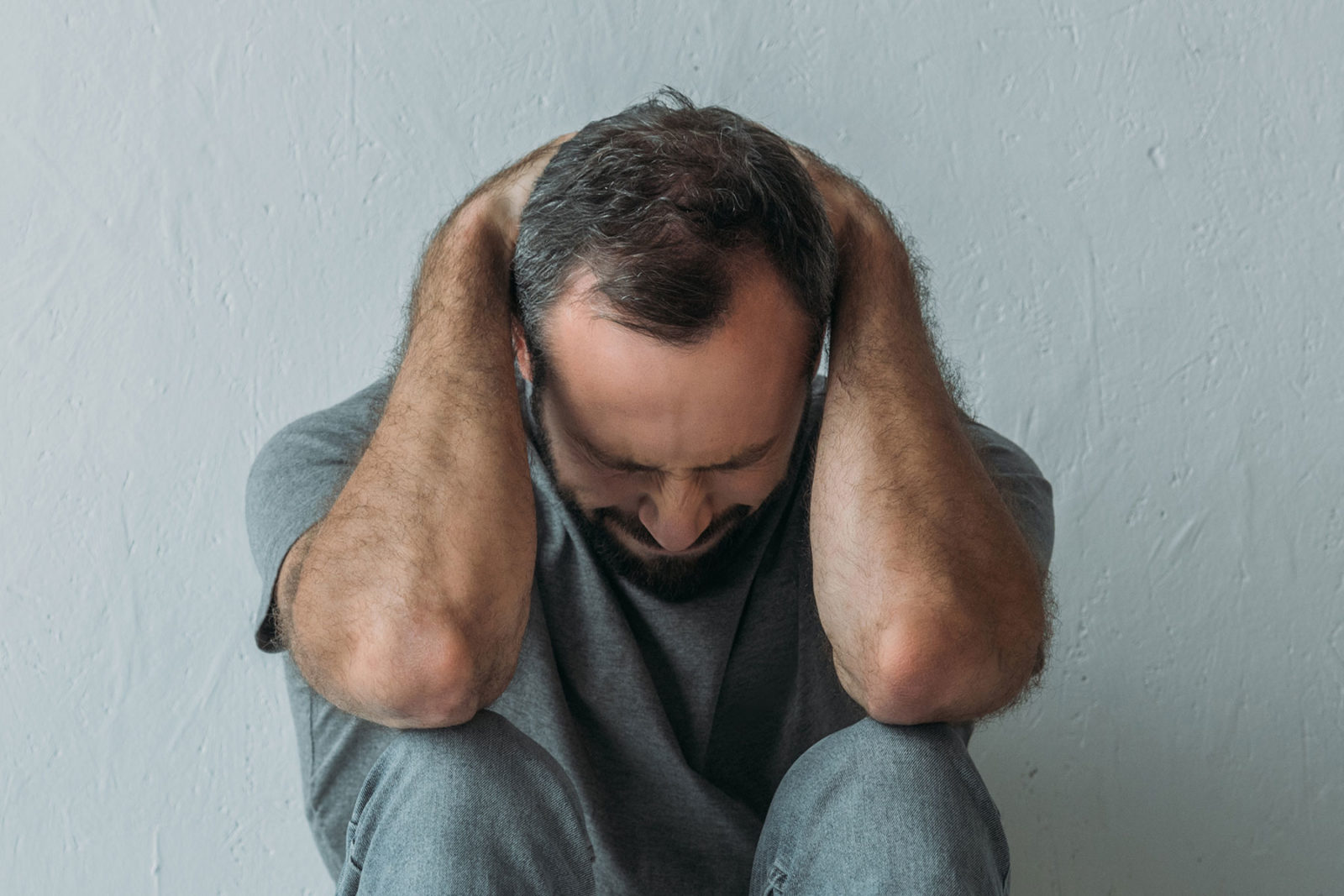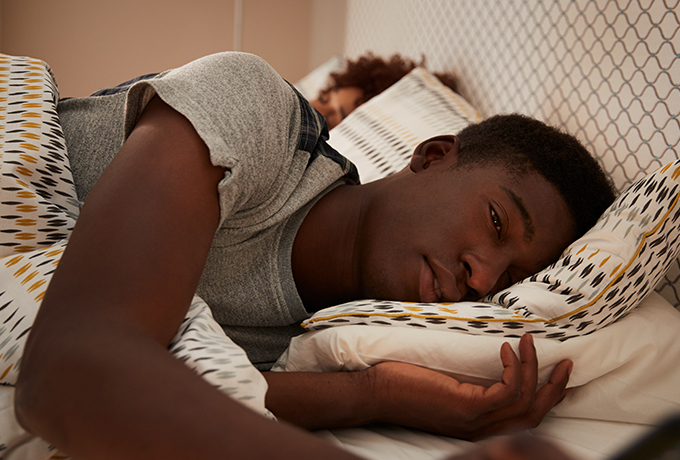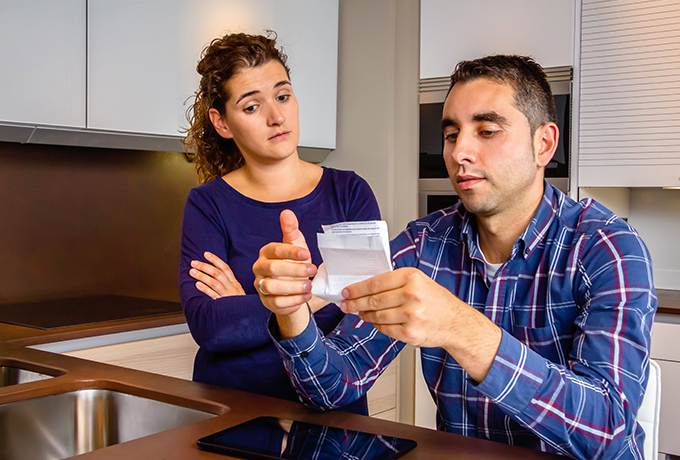Feeling stressed out and how to get help
You know what stress is. But what causes stress, and how can you better manage it?
Read moreIf you have been thinking about hurting yourself, you are not the only person to have felt this way or used self-harm to cope with difficult times in your life. Understand some of the reasons you may be self-harming and learn about alternative ways to manage your response when you start to feel like hurting yourself.

Self-harm is when you deliberately inflict pain, injury or damage to yourself. It is often seen as a coping mechanism to deal with intense emotional distress. Self-harm can include cutting, burning, hair pulling, scratching, biting, head banging or pinching oneself.
Self-harm is usually not a suicide attempt or intended to be fatal, but rather a means to cope with or feel some relief from powerful negative experiences. Some people describe self-harming as providing an external expression of internal feelings. It can be associated with strong and sustained emotions such as guilt, shame, sadness, anger and fear.
Some circumstances that have led people to hurt themselves are:
Hurting yourself may feel like a release and helps deal with your emotional pain. You may feel it gives you a way to express your intense negative feelings that are impossible to put into words, and provides you with a sense of control. For some people, it can be a form of self-punishment or a way to deal with guilt or shame.
However, self-harm only provides temporary relief and gives you no opportunity to work through your feelings. After a while, you may find that you need to hurt yourself more and more to get the same relief. If this behaviour goes on, your self-harm could become the only means of dealing with obstacles in your life, which can become life-threatening.
Your safety
If you are thinking about self-harming or have self-harmed in the past, you should tell someone you trust, such as a family member, a friend or a health professional.
If your self-harm has reached the point where you or someone else is concerned about your physical safety (for example, the risk of infection), seek immediate medical attention at your local GP or hospital. If it’s an emergency, call 000.
There are alternative ways to cope with negative emotions. When you start to feel like hurting yourself, try the following to stop self-harming in the moment:
These alternative strategies are not solutions to self-harming behaviour, but they can be used as short-term alternatives while you are seeking help from a counsellor or psychologist. These coping strategies can help you to get past the intense feelings that lead you to wanting to hurt yourself. While these feelings are intense, they do pass.
The following relaxation techniques can help ease the tension you may be feeling. Please know that what works for one person may not work for another, so try to find what enables you to relax.
Box breathing: This is a simple technique that can help you feel calm and lower your stress. Inhale through your nose for 4 seconds, hold for 4 seconds, exhale through your mouth for 4 seconds, and hold for 4 seconds. Repeat this cycle a few times until you feel calmer.
Five senses technique: This grounding technique brings your attention to the present moment by engaging all your senses.
Notice:
Progressive muscle relaxation: This technique involves tensing and then releasing different muscle groups in your body. Start with your toes and work your way up: tense each muscle group for 5 seconds, then release and notice the sensation of relaxation. Move through your calves, thighs, stomach, chest, arms, and face. This helps release physical tension that builds up when you’re distressed.
If you have thoughts of self-harm or are self-harming, it’s important to speak to someone you trust. This may feel intimidating and you may be worried about how to start the conversation. Below are some tips on how you might start:
If you find talking about it too overwhelming, write down the feelings you have been experiencing and give them to someone you trust who can support you. Sharing your experience can be the first step to recovery.
You do not have to face your situation alone. You can get professional help to stop self-harming and understand what is causing you to self-harm in the first place. A health professional can help you learn new strategies to cope. You will not be judged or thought any less of because you self-harm.
You can speak to your GP or a mental health professional who will help you with a management plan. Your GP can also refer you to a psychologist for ongoing support. Be honest about what is happening so that you can get the support you need. If you have already spoken with your GP or a mental health professional, stay connected.
Our counsellors at SuicideLine Victoria can help you start to work on what is triggering you to self-harm. We’re here 24/7 on 1300 651 251.
Kids Helpline can help kids and teenagers on 1800 55 1800.
To find health professionals and services in your area, visit:
SuicideLine Victoria is a free 24/7 telephone and online counselling service offering professional support to people who are concerned about their emotional and mental health. Call 1300 651 251. If it is an emergency, call 000.
You know what stress is. But what causes stress, and how can you better manage it?
Read more
Feeling suicidal can be an overwhelming and painful experience, but it is not something you have to bear alone. You can get help. There are services and professionals available to support you through this difficult time.
Read more
Your mental health, physical health, quality of life and safety is reliant on you getting enough sleep. During sleep, your body works to support healthy brain function and maintain your physical wellbeing. Sleep is just as important as a healthy diet and exercise.
Read more
Financial stress arises when there is a mismatch between your income and expenses, which leads to worry, anxiety, and uncertainty. Learn more about the signs of financial stress and how to cope.
Read more